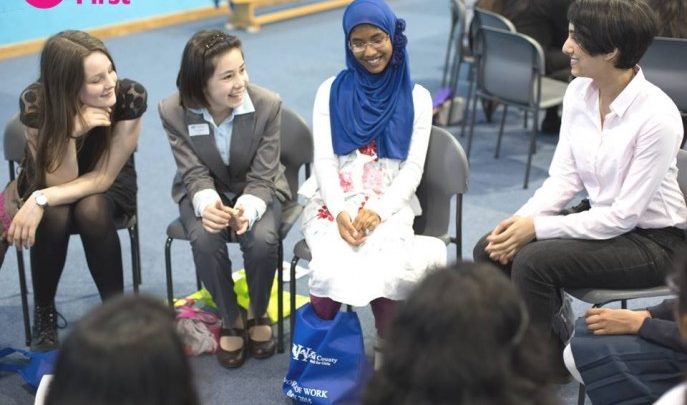Back to School – How Alumni can Show Today’s Pupils that ‘People Like Them’ can Succeed

Alumni networks are benefiting Birmingham state students, says Executive Chair of Future First, Christine Gilbert…

Three quarters of judges, three quarters of top military officers, nearly two thirds of top doctors and more than half of leading print journalists – never have Britain’s elite jobs been more dominated by privately educated students. And this is despite only 7% of pupils attending independent schools.
Across the country, thousands of youngsters from more disadvantaged families are missing out on fulfilling careers just because of their background.
Birmingham, which has been identified by the government as a ‘cold spot’ for careers support, is just one of the areas hit by this problem.
Evidence from the Careers and Enterprise Company, set up in 2015 to work in partnership with schools, colleges, employers and youth organisations to create opportunities for all young people, has highlighted specific needs in different parts of the country.
It indicates that a quarter of Birmingham’s students are eligible for free school meals. It also shows that students from the city are significantly underachieving at GCSE level, with only around half attaining five or more A*-C grades.
We also know that a mere 3% of Birmingham’s youngsters go into a sustained apprenticeship after school.
Just recently (13-17 March) state-school students across the city took part in Future First’s Back to School Week, showing how alumni networks can boost students’ motivation and confidence, helping them to believe that ‘people like them’ can succeed in their chosen career.
Participating secondary schools – including Kings Norton Girls’ School, Holyhead School and Ark St Albans Academy – are building alumni networks which support current and future generations of students as positive role models, inspiring speakers, mentors and work-experience providers.
Private schools and universities have long known the value of keeping their alumni engaged, but state schools have historically lagged behind and missed out on harnessing the crucial experience and talent former students can offer.
Actress Julie Walters, of Harry Potter, Mamma Mia! and Billy Elliott fame, backs Future First’s campaign, saying that the world of work is a difficult and challenging place, so the more help students have in broadening their jobs horizons and navigating the challenging transition from the classroom to work, the better.
We know that hearing from alumni can transform students’ motivation to succeed.
Our research shows 82% of students attending a Future First-led alumni session say they are inspired to work harder in school. They come away with a better understanding of the real-life application of their studies, while the personal stories of alumni encourage them to be more ambitious and confident about what they can do in the future.
The ways in which alumni can volunteer alongside teaching and careers staff in school to encourage aspiration are varied, with schools targeting areas of individual need:
| • | At St Richards in East Sussex, former students return to run mock interviews with Year 12 students ahead of university applications. |
| • | At Bodmin College in Cornwall, ‘Where are you now?’ profiles line the corridors to inspire students as they walk to their lessons. |
| • | At Dinnington High School in Sheffield, alumni return to speak to 14-year-olds about their GCSE options, helping students understand how the subjects they are choosing relate to the world of work. |
Alumni can offer support from afar too. Former pupils send advice to students who are about to leave school, offer online mentoring and hold Skype talks from around the world.
| • | At St Anne’s School in Southampton, a former student is providing online mentoring to a prospective medical student who has been concerned about her exams. |
| • | At Tiverton High School in Devon, a former student based in the Netherlands taught an A-Level geography lesson on international labour markets through Skype. |
The knowledge of the school and the community alumni have makes them ideally placed to contribute to other areas of school life; as governors, fundraisers and donors, for example.
Robert Clack School in Dagenham raises money for university trips across the country with the help of its alumni network. One school helped fill its new library by asking each of its alumni to donate a new copy of a book they had enjoyed. In fact, our research shows there is £100m in untapped donations from alumni which schools could use to support their students.
The list of possibilities is endless.
We want more schools and colleges to harness the wealth of experience of their alumni, in turn helping to drive more ambitious thinking about students’ expectations of work in the modern world.
It really is very simple. If teenagers see that people like them have succeeded, they are more likely to believe they can too.
They work harder and have higher expectations of success.
At Future First, we are passionate about the value that alumni can bring to schools and young people, and we want all schools to see the benefits of using their alumni as a powerful resource to help their young people succeed.
To volunteer to support your former school or college visit futurefirst.org.uk and click the Former students link.
Christine Gilbert is Future First Executive Chair and a former Ofsted Chief Inspector.











